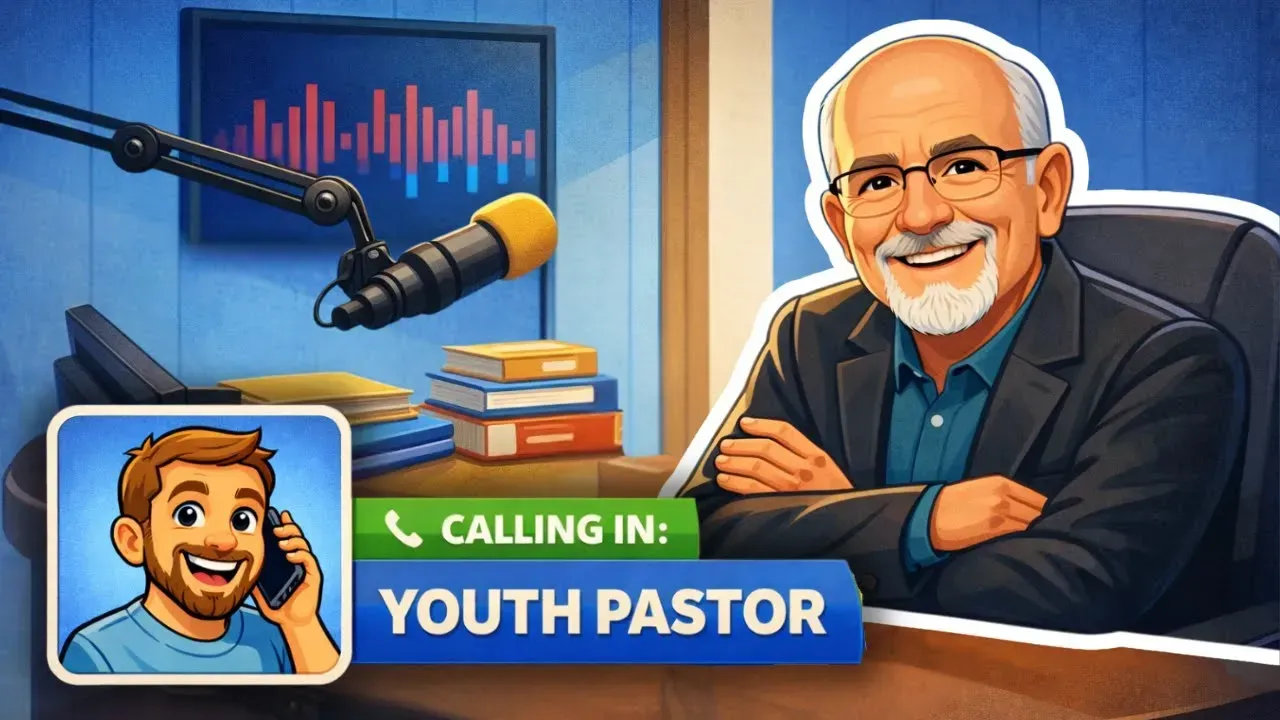What Do Gen Alpha Students REALLY Think About God?
What Gen Alpha Is Telling Us About Faith—and How Youth Ministries Can Respond
Check out the podcast
here!
Everyone’s asking: What will Gen Alpha believe about God? Thanks to Springtide Research’s 2024 study of 1,000+ thirteen-year-olds, we finally have some early signals—and they’re both encouraging and challenging for youth workers.
Below is a quick read you can use with your team. I’ll share the most useful stats, the on-the-ground implications, and practical next steps we can implement this month.
The Big Shift: From “Partnering with Parents” to “Partnering with Students to Reach Parents”
In many ministries (ours included), it’s now almost as common to hear a student say, “I’m trying to reach my parents with the gospel,” as it is to hear, “My parents are discipling me at home.” That doesn’t mean we neglect parents; it means our strategy must reflect reality on the ground. Students are here—eager, open, and looking for help having faith conversations at home. Let’s equip them.
Four Takeaways From the Springtide Data
1) Spiritually open—and less resistant to “religion”
- When asked if they consider themselves spiritual, only 18% said “not spiritual,” meaning 82% are at least a little spiritually open.
- When asked if they consider themselves religious,
74% said they’re at least slightly religious.
Why this matters: Unlike Millennials and many Gen Z who often said, “spiritual but not religious,” a lot of Gen Alpha doesn’t carry the same “organized religion” baggage. Many weren’t raised in church and haven’t accumulated church hurt or cynicism. Translation: students are surprisingly open to church spaces if we invite them and care well when they arrive.
Ministry moves:
- Stop assuming a baseline of church baggage; don’t over-correct for a problem many of them don’t have.
- Make clear, warm invitations into church life. A simple, personalized invite still works.
- Emphasize hospitality and clarity. If they try church once, can they immediately find their next step?
2) Thin denominational ties = higher vulnerability (and opportunity)
- Among 13-year-olds who identified as Christian (about 66%):
- 28% said Catholic
- 20% said Protestant
- 50% said essentially, “I’m just Christian”
What this reveals: Many Gen Alpha students lack deep roots in a tradition. That can be refreshing—less turf war, more focus on Jesus. It can also be risky—without catechesis and biblical literacy, TikTok theology and charismatic personalities can fill the gap. Students often don’t know what they don’t know.
Ministry moves:
- Teach the basics: how we trust the Bible, the storyline of Scripture, the gospel, core doctrines (God, sin, salvation, church, mission).
- Train discernment: help students evaluate reels, shorts, and hot takes—What is the claim? What does Scripture say? What’s missing?
- Create a gentle on-ramp to tradition: explain words like “Protestant,” “creed,” and “confession” in plain language. Give students guardrails, not just vibes.
3) Faith talk at home is rare—so give students grace (and tools)
- When asked how much their close family talks about religion/spirituality:
- 23% said “a lot”
- 39% “somewhat”
- 25% “not much”
- 13% “not at all”
Reality check: Many families are two generations removed from regular church life. For a large chunk of your students, there simply isn’t a discipling parent at home. Ryne’s takeaway: shift a meaningful slice of our energy from “partnering with parents to disciple their kids” to partnering with students to lovingly reach their parents.
Ministry moves:
- Coach students in household evangelism with honor: how to share their story, ask for permission, pray for parents by name, and show Christlike patience at home.
- Provide “conversation kits” for students (and willing parents): simple prompts, one-page guides for dinner table questions, “How to ask Mom/Dad to pray for you,” etc.
- Normalize the long game: celebrate small steps—an honest talk, attending a service together, praying before a test.
4) They’ll show up—but retention takes a plan
- Attendance frequency:
- 22% never
- 20% rarely
- 15% a few times a year
- 13% once or twice a month
- 22% weekly
- 8% more than weekly
The hinge group: that 13% who come once or twice a month. They’re warm—open to more—but life is noisy and calendars are brutal. If we build simple systems to engage them across their first three visits, we’ll see far more students take root.
Ministry moves:
- Map a First 3 Visits pathway:
- Visit #1 – Welcome + Gospel touch: Warm greeting, a personal host (student or leader), and a clear, non-pushy gospel summary. Send a same-day text from a real leader.
- Visit #2 – Belonging cue: Reconnect them with the same faces. Invite to a small group, serving micro-role, or fun mid-week. Ask, “How can we pray for you this week?”
- Visit #3 – Stickiness moment: Give a next-step “win” (share testimony in small group, join a reading plan, come early to help set up). Personal follow-up within 48 hours.
- Track like you care: simple spreadsheet/CRM fields—Who invited them? When did we last follow up? What’s their next step?
- Make the room “worth returning to”: not hype-for-hype’s-sake, but genuine community, thoughtful teaching, and small rituals that create belonging (student-led welcomes, inside-joke videos, rotating tasting bar, etc.).
Practical Plays You Can Borrow
- First-Timer Lanyard: A customizable lanyard with a free snack card, socials via QR, and a simple gospel summary on the back. A leader walks them through it in 60 seconds. Low cost, high clarity, rarely left behind.
- Four-Week New-Believer Guide: A short booklet that builds identity, Scripture habits, prayer, and mission—with a daily “activation” challenge (share, serve, ask for prayer). Students don’t just learn the faith; they practice it.
- Discernment Moments: Once a month, take a trending clip and walk students through how to test it by Scripture. Make critical thinking normal and fun.
Bottom Line for Youth Pastors
Gen Alpha is open, curious, and ready to show up. They’re also under-rooted, under-resourced at home, and swimming in content that outpaces their discernment. If we:
- Invite clearly (because “organized religion” isn’t the barrier we assumed),
- Root them deeply (Bible, gospel, basic doctrine, church family),
- Coach them to reach home (honor + patience + prayer), and
- Build simple retention systems (the first three visits matter),
…we’ll see students grow—and families follow.











